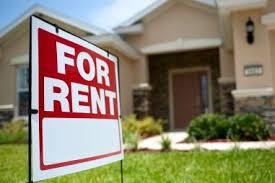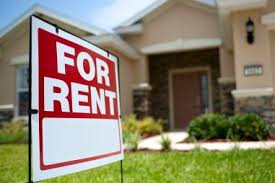
Rental vacancy, the space available for rent, dropped below the lowest point in 30 years which has resulted in net rentals income getting nearly double than what they were about a decade ago in the US.
As noted by economists, even recession did not have an impact on the rise of rental income as it continued to grow through the 2008-2009 economic recession. In the US, 8 million jobs were lost and total personal income for the country plunged by nearly $1 trillion during the economic recession of 2008-2009. This 2008 recession, which was the harshest economic downturn since the Great Depression of the 1930s, income from rentals rose throughout the recessionary period.
Inflated housing industry was the cause of the recession of 2008 and thousands of people lost their homes which were taken away by the banks. Therefore such people started looking out for a place to live and rented places were the only places that they could find.
The number of rental households rose while the number of homeowners fell. a trend that started in 2008 continues till date even as the US economy enters the seventh continuous year of expansion.
The rate of renters have risen by 3.65 compared to last year frustrating wage earners as housing costs are rising and are doubling their wage growth rate.
The landlords are however happy and have a smile on their faces as the total rental income component - rents collected from tenants, soared from $60 billion in 2007 to now over $130 billion.
Analysts predict that the soaring rental income will not continue. The driving factor for this is the construction activity on apartments that is already above the historical normal. Multifamily housing starts are at the strongest pace in nearly 30 years and have reached 400,000 on an annualized basis this year.
The credit scores of renters are also increasing helped by a steady job growth and falling debt levels, except student loans. This is putting people in a better position to buy a home.
The expected rise in “return homebuyers” is another factor that is expected to boost rentals. Foreclosures or sales of over 9 million households happened from 2006 to 2014. Not all the people who lost their homes are in a position to get back to the home buying market since the mortgage underwriting will not return to lax conditions of the subprime lending bubble.
However, based on detailed analysis of credit score profile distribution, experts are of the view that about 1.5 million homeowners who did go through the unpleasant experience of a distressed property sale look to come back as qualifying, responsible homebuyers over the next five years.
Hence while the demand growth for rental homes will be more muted and certainly no longer surging, the supply will be rising. Therefore economists are of the view that the scope for rental income growth would still exists for another year or two until the people who lost their homes in the economic crisis return back to the housing market.
Hence landlords can rest assured of continued rental income for a couple of more years at least.
(Source:www.forbes.com)
As noted by economists, even recession did not have an impact on the rise of rental income as it continued to grow through the 2008-2009 economic recession. In the US, 8 million jobs were lost and total personal income for the country plunged by nearly $1 trillion during the economic recession of 2008-2009. This 2008 recession, which was the harshest economic downturn since the Great Depression of the 1930s, income from rentals rose throughout the recessionary period.
Inflated housing industry was the cause of the recession of 2008 and thousands of people lost their homes which were taken away by the banks. Therefore such people started looking out for a place to live and rented places were the only places that they could find.
The number of rental households rose while the number of homeowners fell. a trend that started in 2008 continues till date even as the US economy enters the seventh continuous year of expansion.
The rate of renters have risen by 3.65 compared to last year frustrating wage earners as housing costs are rising and are doubling their wage growth rate.
The landlords are however happy and have a smile on their faces as the total rental income component - rents collected from tenants, soared from $60 billion in 2007 to now over $130 billion.
Analysts predict that the soaring rental income will not continue. The driving factor for this is the construction activity on apartments that is already above the historical normal. Multifamily housing starts are at the strongest pace in nearly 30 years and have reached 400,000 on an annualized basis this year.
The credit scores of renters are also increasing helped by a steady job growth and falling debt levels, except student loans. This is putting people in a better position to buy a home.
The expected rise in “return homebuyers” is another factor that is expected to boost rentals. Foreclosures or sales of over 9 million households happened from 2006 to 2014. Not all the people who lost their homes are in a position to get back to the home buying market since the mortgage underwriting will not return to lax conditions of the subprime lending bubble.
However, based on detailed analysis of credit score profile distribution, experts are of the view that about 1.5 million homeowners who did go through the unpleasant experience of a distressed property sale look to come back as qualifying, responsible homebuyers over the next five years.
Hence while the demand growth for rental homes will be more muted and certainly no longer surging, the supply will be rising. Therefore economists are of the view that the scope for rental income growth would still exists for another year or two until the people who lost their homes in the economic crisis return back to the housing market.
Hence landlords can rest assured of continued rental income for a couple of more years at least.
(Source:www.forbes.com)





